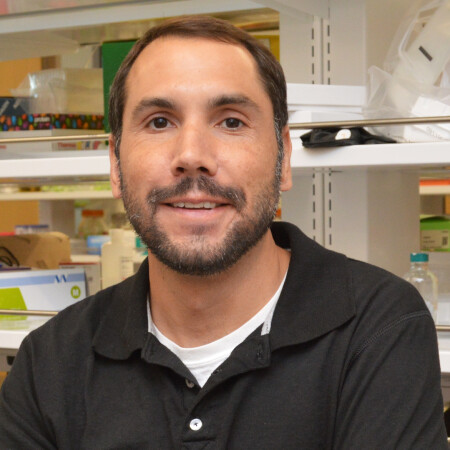Postdoctoral - Microbiology/Synthetic Biology
University of Texas at Austin - 2017

Joseph Boll
Associate Professor - Biological Sciences
We are focused on understanding mechanisms that contribute to antibiotic treatment failure and developing alternative strategies to combat "superbugs".
Professional Preparation
PhD - Molecular Biosciences (Microbiology)
University of Texas Southwestern Medical Center - 2013
University of Texas Southwestern Medical Center - 2013
BSc - Microbiology
Texas Tech University - 2007
Texas Tech University - 2007
Research Areas
Understanding how Gram-negative bacteria survive without lipopolysaccharide
This research topic focused on how Acinetobacter baumannii, which is a nosocomial pathogen, inactivates lipooligosaccharide (LOS) production to develop resistance to colistin, which is the last-line treatment against multidrug resistant Gram-negative bacteria. Using high-throughput sequencing, lipidomics, and mass spectrometry we found that the outer membrane is remodeled when LOS is not made. Specifically, a compensatory mutation of the class A penicillin-binding protein, PBP1A is required for A. baumannii survival without lipid A. My research group is currently working to elucidate the cell wall modifications that support Gram-negative survival without lipid A.Characterizing chemical modifications that promote antimicrobial resistance in nosocomial Gram-negative pathogens:
Bacteria remodel their surface with chemical moieties to fortify the barrier and protect the cell from toxins, such as antimicrobials. We recently found that some Gram-negative "superbigs" modify the lipid A portion of lipopolysaccharide with aminoarabinose to induce cationic antimicrobial peptide heteroresistance and beta-lactam tolerance. The chemical modification is regulated by the PhoPQ two-component system. Furthermore, we have characterized various modifications that lead to antimicrobial resistant in other Gram-negative bacteria.Publications
Alternative lipid synthesis in response to phosphate limitation promotes antibiotic tolerance in Gram-negative ESKAPE pathogens 2024 - Other
Aminolipid biosynthesis in response to phosphate limitation promotes colistin tolerance inAcinetobacter baumannii 2024 - Other
PBP1A directly interacts with the divisome complex to promote septal peptidoglycan synthesis in Acinetobacter baumannii 2022 - Other
High-level carbapenem tolerance requires antibiotic-induced outer membrane modifications. 2022 - Journal Article
PBP1A Directly Interacts with the Divisome Complex to Promote Septal Peptidoglycan Synthesis in Acinetobacter baumannii 2022 - Journal Article
Peptidoglycan Recycling Promotes Outer Membrane Integrity and Carbapenem Tolerance in Acinetobacter baumannii. 2022 - Journal Article
In Mycobacterium abscessus , the Stringent Factor Rel Regulates Metabolism but Is Not the Only (p)ppGpp Synthase 2022 - Journal Article
Peptidoglycan recycling contributes to outer membrane integrity and carbapenem tolerance in Acinetobacter baumannii 2021 - Other